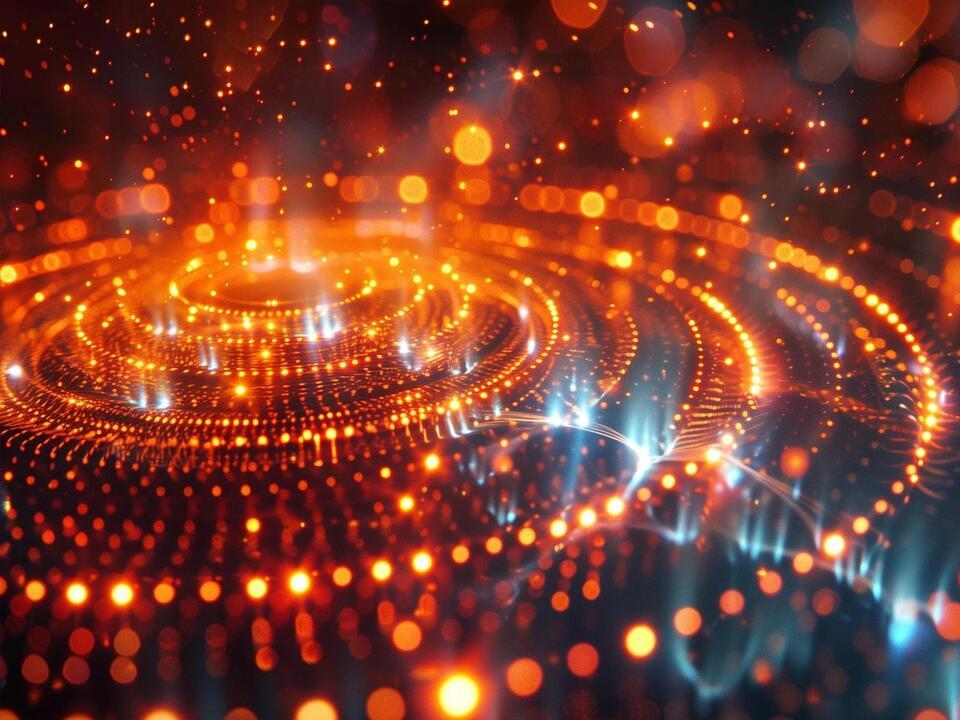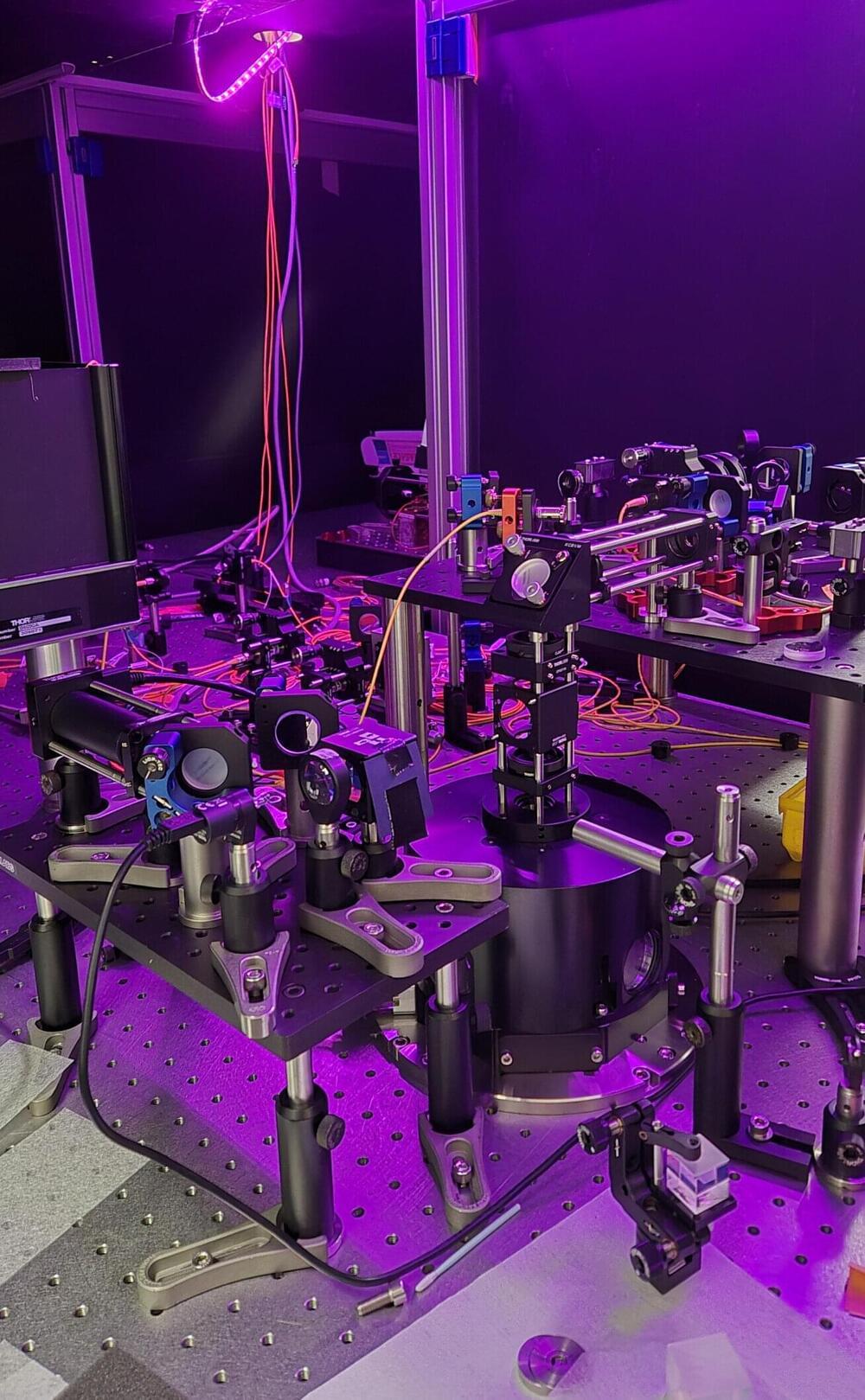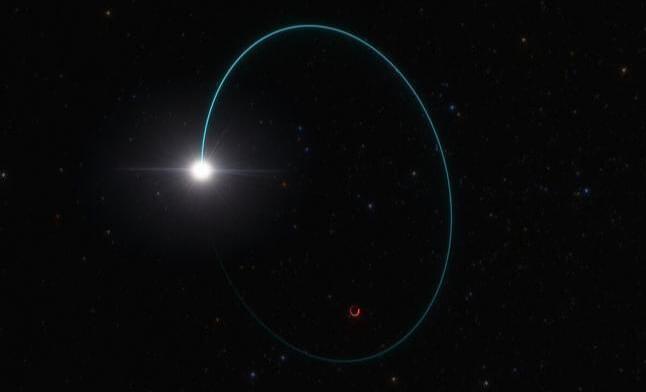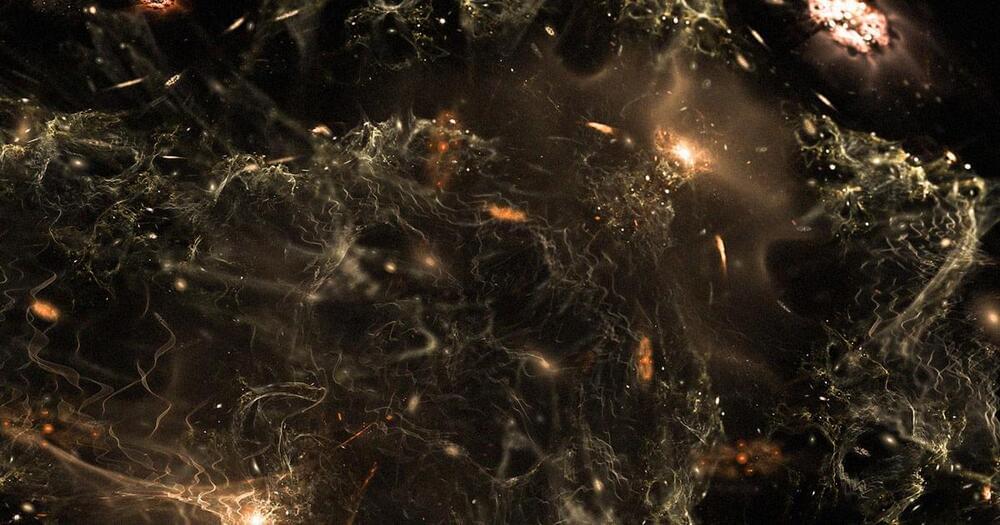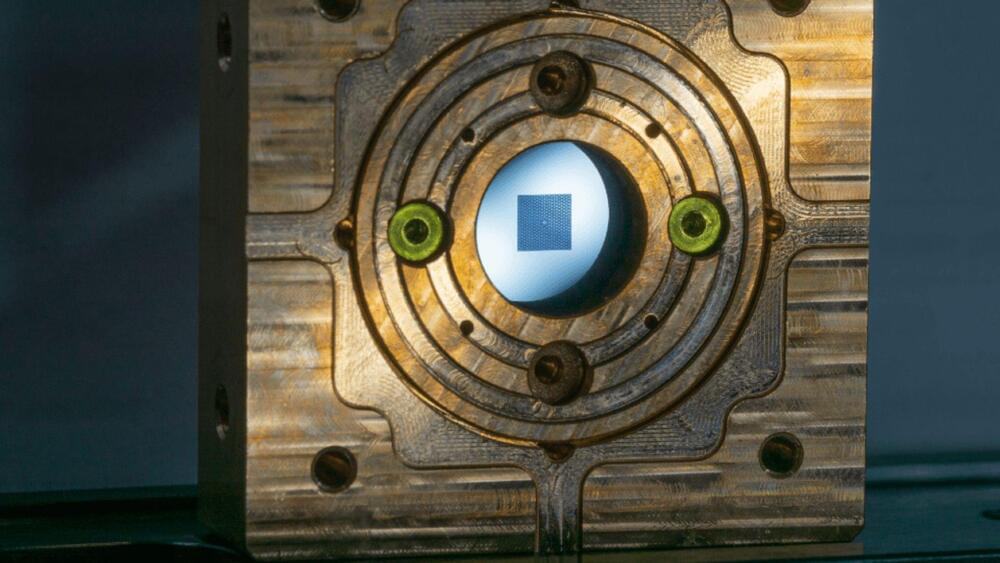
In a basement under the office at the University of Copenhagen, where Niels Bohr once conducted his research, the team toiled to demonstrate an innovative approach to storing quantum data – the quantum drum.
Made of ceramic, the small membrane of the drum has holes scattered around its edges in a neat pattern. When a laser light is incident on the membrane, it begins beating. The sonic vibrations of the drum can be stored and forwarded.
Through their previous work, the researchers know that the membrane stays in a fragile quantum state and can, therefore, receive and transmit data without losing it.

